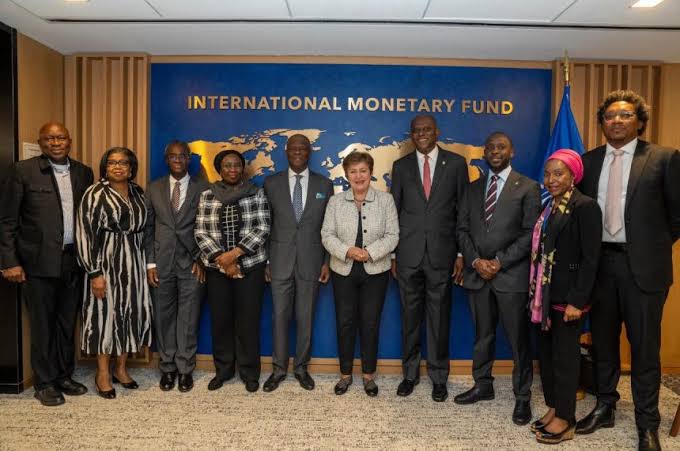
Nigeria’s delegation to the 2025 International Monetary Fund (IMF) Spring Meetings is being led by the Minister of Finance and Coordinating Minister of the Economy, Mr. Wale Edun. The meetings are taking place in Washington, D.C., from April 21 to April 26.
Held annually, the IMF Spring Meetings bring together representatives from 190 countries—including finance ministers, central bank governors, and key economic stakeholders—to address critical issues in global finance. The event serves as a platform for promoting macroeconomic stability, offering policy guidance, and supporting nations facing balance-of-payments challenges.
Nigeria’s delegation includes senior officials from the Central Bank of Nigeria (CBN), chief executives of financial institutions, and representatives from the private sector, civil society, and non-governmental organisations. The country aims to use this global platform to advocate for policies that reinforce economic stability, enhance financial regulation, and improve trade resilience.
The Bretton Woods Institutions—the IMF and the World Bank—remain central to shaping the architecture of global economic governance. While the IMF focuses on monetary stability, the World Bank’s mandate is poverty reduction and economic development. With rising concerns over global economic volatility, this year’s meetings are expected to delve into financial market uncertainty, trade disruptions, and strategies for promoting inclusive growth.
One of the headline topics is the global fallout from U.S. President Donald Trump’s re-imposed import tariffs since his return to office in January 2025. These sweeping measures have disrupted global trade flows, prompting countries to seek solutions to cushion their economies and preserve international partnerships.
The discussions will also centre on building a more resilient global economy—one that can absorb shocks and support sustainable development. Key sessions include:
• Global Economic Analysis: Presenting insights into evolving financial trends and necessary policy adjustments.
• Bilateral Consultations: Facilitating country-level discussions on economic cooperation strategies.
• Poverty Eradication Initiatives: Evaluating global efforts to tackle economic inequality and promote development financing.
In addition, the IMF will unveil its World Economic Outlook, offering projections on global growth, and the Global Financial Stability Report, assessing systemic financial risks.
A major agenda item is the reform of the international financial system to better support developing nations. Delegates will explore structural reforms, innovative funding models, and the integration of climate considerations into financial planning—underscoring the increasing importance of environmental sustainability in economic policy.